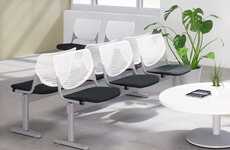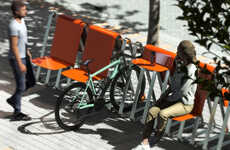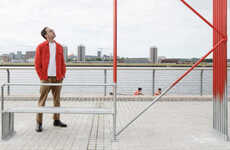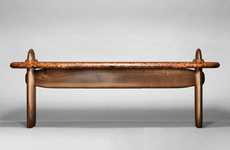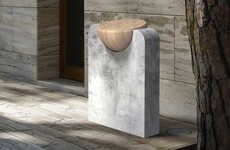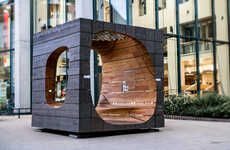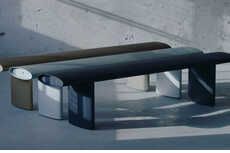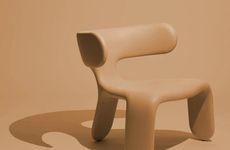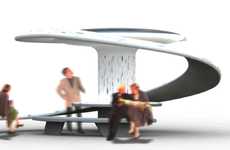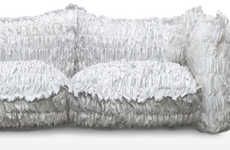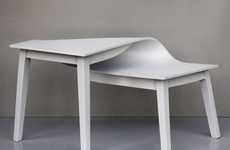
The Klimp City Furniture is Eco-Friendly and Versatile
Meghan Young — July 19, 2011 — Eco
References: keha3.ee & designbuzz
More and more cities around the world seem to be making an effort to introduce cool creations that serve a public purpose such as the Klimp City Furniture. This public bench not only helps to create an identity -- even a brand as some might say -- for an urban setting, it also provides a communal area of rest and even appreciation.
Designed by Margus Triibmann, the Klimp City Furniture happens to look like a warped tire from a war tank. This heavy duty look gives it a strong and striking appearance, which also assures people that it will offer a safe seat as well as last a long time. Made up of recycled and planet-friendly materials, the Klimp City Furniture is also versatile, able to be rotated in order to offer different comforts to different people.
Designed by Margus Triibmann, the Klimp City Furniture happens to look like a warped tire from a war tank. This heavy duty look gives it a strong and striking appearance, which also assures people that it will offer a safe seat as well as last a long time. Made up of recycled and planet-friendly materials, the Klimp City Furniture is also versatile, able to be rotated in order to offer different comforts to different people.
Trend Themes
1. Eco-friendly Furniture - Designing furniture using recycled and planet-friendly materials presents disruptive opportunities for companies to meet the current consumer trend of eco-consciousness.
2. Urban Public Spaces - Creating public seating options that offer identity and communal areas of rest presents disruptive opportunities for companies looking to provide innovative solutions for urban environments.
3. Versatile Seating Design - Designing versatile seating options that can be rotated to offer different comforts to different people presents disruptive opportunities for companies to meet the evolving needs of their customers.
Industry Implications
1. Furniture Industry - Incorporating eco-friendly materials and versatile design in furniture production presents disruptive innovation opportunities for companies looking to meet the growing consumer trend of sustainability while providing innovative products to the market.
2. Urban Development Industry - Designing innovative furniture solutions to beautify and support urban public spaces presents disruptive opportunities for companies in the urban development industry, particularly as more cities prioritize public infrastructure development.
3. Sustainability Industry - Transforming recycled materials into functional and eco-friendly furniture products presents disruptive opportunities for companies in the sustainability industry to collaborate with other industries and offer new innovative products to the market.
4.3
Score
Popularity
Activity
Freshness


